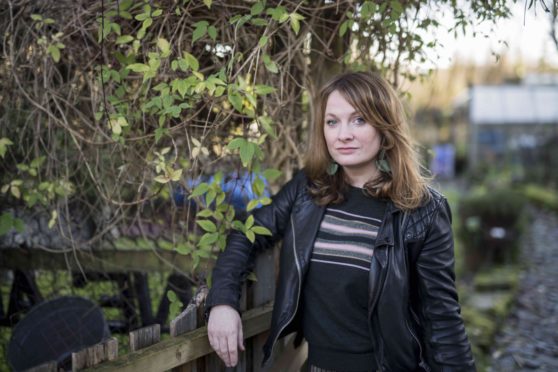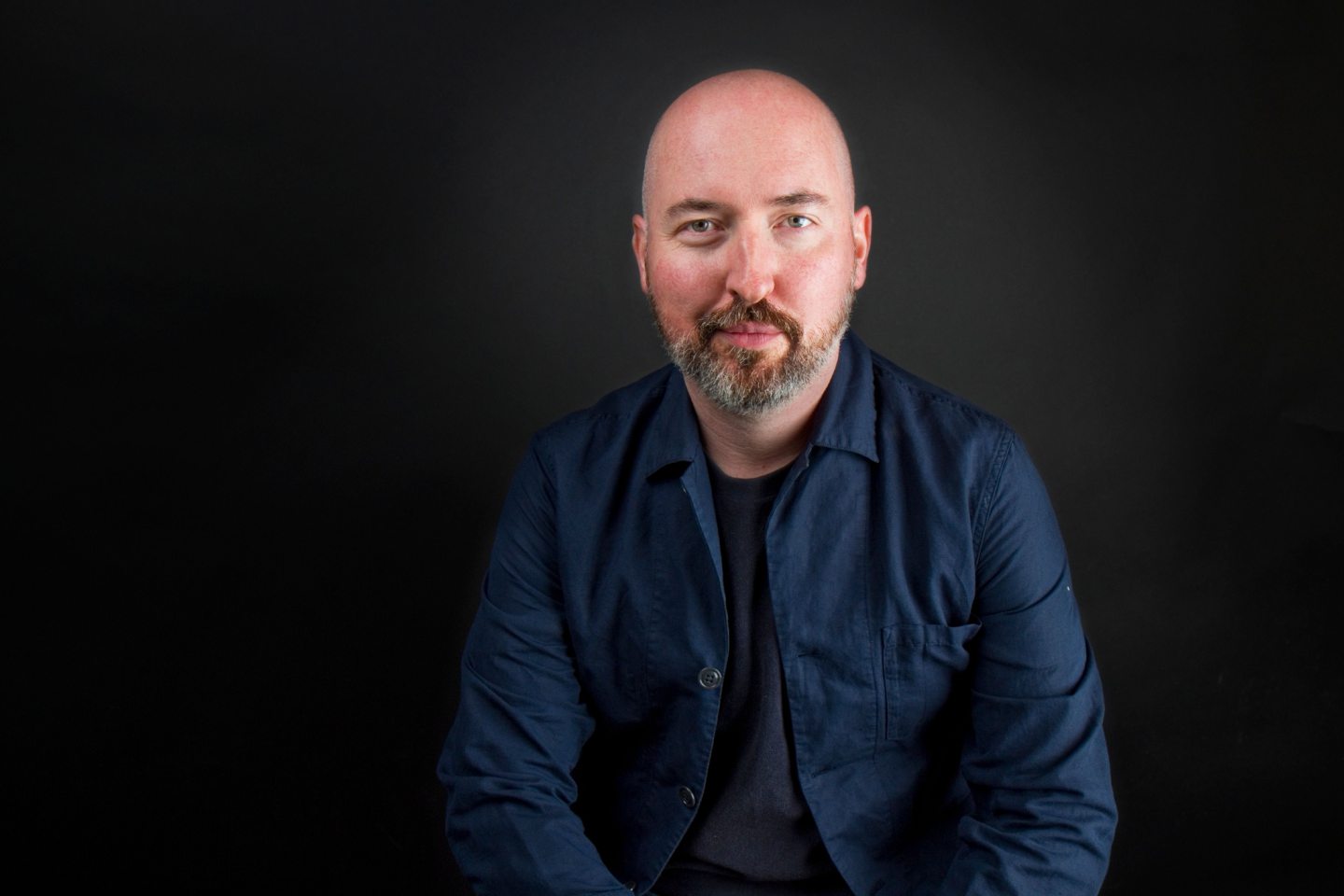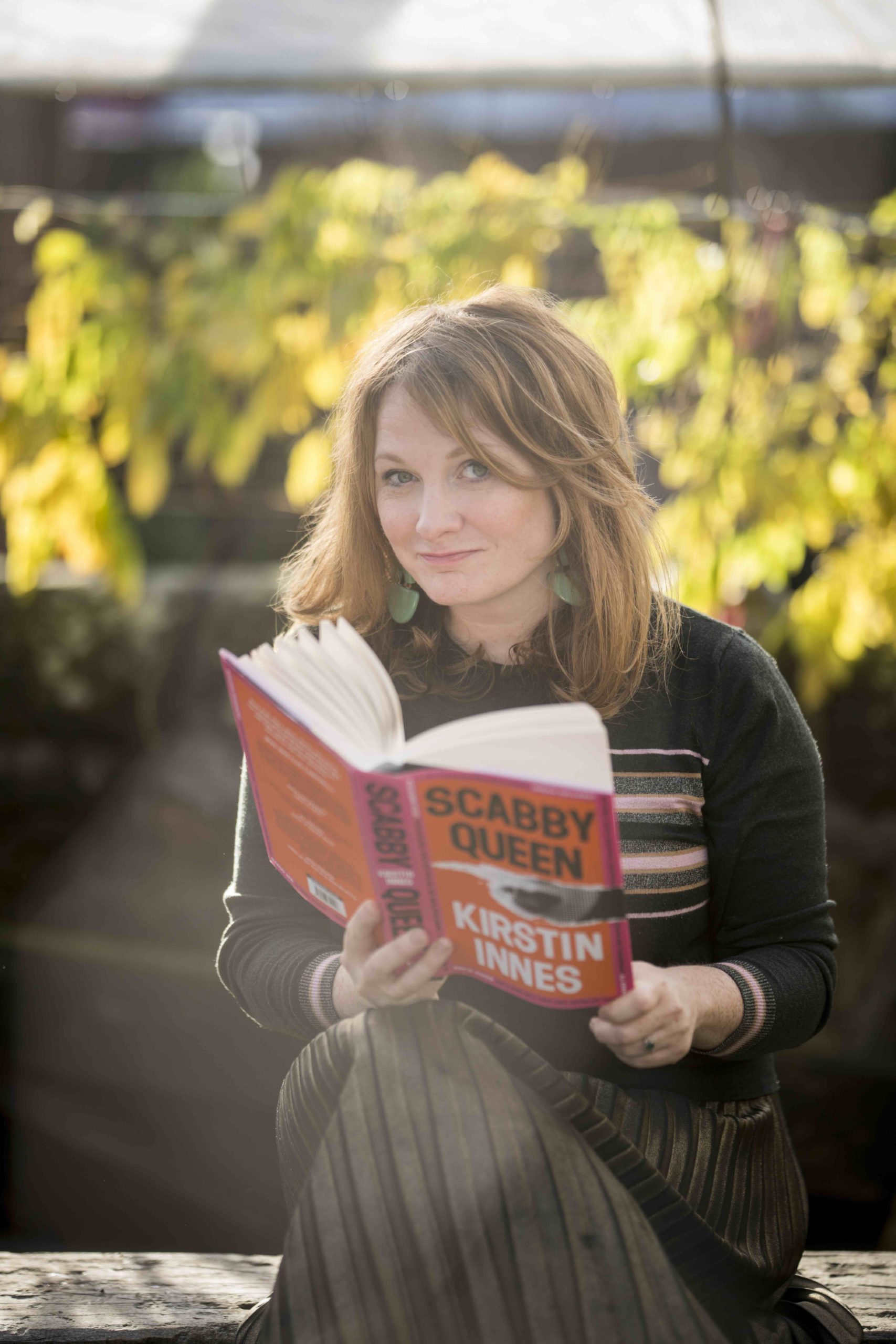
They are two of the standout literary stars of 2020 and have topped the First Minister’s books of the year list.
Glasgow-born, New York-based writer Douglas Stuart’s debut novel Shuggie Bain was unanimously judged the winner of this year’s coveted Booker Prize, while Edinburgh author Kirstin Innes – who landed the Not The Booker readers’ award with her first novel Fishnet in 2015 – is another of Nicola Sturgeon’s top picks with her second book Scabby Queen.
A keen reader, Sturgeon told the New Statesman: “It just happens that my favourite books this year are by Scottish writers. Shuggie Bain by Douglas Stuart is a searing, brutal and deeply moving account of poverty, addiction and childhood trauma. It’s a painful portrayal of how these forces crush the human spirit, but it strikes a note of hope about human resilience too.
“Scabby Queen by Kirstin Innes is a glorious mix of feminism, Scottish politics from the miners’ strike to Indyref, and the vicissitudes of celebrity culture – an engrossing tour de force.”
Shuggie Bain was last month selected as the first Scottish novel to win the prestigious Booker since James Kelman’s How Late It Was, How Late in 1994, chair of judges Margaret Busby calling it “challenging, intimate and gripping…anyone who reads it will never feel the same”.
Both books are rooted in heartache and hope and delivered in the midst of the Covid-19 crisis and both struggled to find a publisher. Here, the authors look back on their year to remember for the right reasons.
Every single day there are powerful narratives coming out of Scotland
Douglas Stuart
Douglas Stuart is still buzzing from the Booker win when we catch up with him at his home in the East Village, New York, but he is equally thrilled to be a First Minister’s favourite.
“I am delighted and hugely honoured,” he beams. “I am also incredibly proud that we have a First Minister who supports the arts and literature. Nicola Sturgeon has been phenomenal throughout the book’s entire life. To see her be so proud on behalf of Scotland and Scottish people when it was awarded The Booker Prize was really touching”.
Shuggie Bain, he said, is a love letter to Glasgow, Scotland and its people; a novel forged in the poverty and politics of 1980s’ Britain. But despite being more than a decade in the making and dedicated to the mum he cared for until her death from alcoholism when he was 16 – the fiction struggled to find a publisher. The author’s New York agent Anna Stein was reported to put its 32 U.S rejections (there were a dozen in the UK) down in part to publishers’ concerns that his Scottish voice was “too far into the margins.”
Douglas, 44, who first presented the 900-page manuscript to his American husband Michael Cary, a Picasso specialist and galleries curator, before sharing it with the world, said: “As a writer you never understand your own life to be on the margin or to be anything different. As a Scotsman, this is my existence and the people I love; this is the milieu I write about. It is only when it starts to intersect with literary circles; with publishers, with editors, and with agents, that you suddenly realise that you are seen as something, ‘other’. You are seen as something from outside the usual purview.
“But Shuggie wasn’t only about Scotland. It’s a working class narrative, set in the 1980s, about a queer boy and his mother who is struggling. It almost had all of those lenses that made it hard to access. So I wasn’t quite aware of writing from the margins until someone told me I was in the margins. I am not in the margin of my own life, nor do I consider any Scottish writer to be in the margins. We are the heart of it.”
So will his Booker win open minds previously closed to Scottish works? “I think it almost certainly will,” he said. “And that is the power of a Booker win; it’s not about what it will do for me and my career, it’s about how many voices it can lift alongside me.
“Every single day and every single year there are really powerful, dynamic narratives coming out of Scotland. Scottish writing has been looking and waiting for its moment. In the same way that Irish writing has enjoyed in the past decade that kind of celebration of Celtic voices, Scotland is creating the same powerful and emotional work, and we’re ready for the moment to show it.”
Throughout Covid-19 he and fellow authors like Kirstin Innes – whose Scabby Queen also takes in the turmoil of the Thatcher years – have stayed in touch virtually. Douglas said: “Kirstin has been phenomenal and her book is incredible. Not only Kirstin, but also Jenny Fagin, Graeme Armstrong, Donald Murray, and David Keenan; all these really urgent, brilliant Scottish voices; to stand amongst them and to support each other has been amazing.”
A fashion designer who moved to New York after being recruited by Calvin Klein aged 24, Douglas revealed his win almost reduced him to tears. He said: “The first person I wanted to thank was my mother, then Scotland and then my husband. My mother would have been proud of me no matter what, but if she’d have seen me win The Booker she would have been at every single door on the street, and I would have loved that to have been possible, especially because it was such a personal story and it draws on my mother’s own struggle. I would have given anything for her to have been there and celebrate that with me.”
The writer usually returns to Glasgow three times a year but has been grounded by the pandemic. With a career as full time writer now ahead of him, his only remaining dream is to come home to his big sister, nieces and nephews. “All of my family are still on the south side of Glasgow, on the streets that I write about,” he said. “They are thrilled and overjoyed {by the win} but I haven’t had a hug yet. When I see them it will be a very quiet celebration. We are not ‘big’ people.”
Douglas Stuart’s favourite read of 2020
As You Were by Elaine Feeney
There have been so many books that have stayed with me in 2020, it’s hard to pick a favourite but I’ve especially enjoyed Gabriel Krause’s Who They Was, Jackie Kay’s The Lamplighter, and Kiran Millwood Hargrave’s The Mercies.
But the book that is really close to my heart is As You Were by Irish writer Elaine Feeney. It’s set in Galway, and is the story of a woman who is diagnosed with terminal cancer but decides not to tell her husband or children about it.
On the hospital ward she makes a close friendship with two other women. Margaret Rose is the matriarch of a chaotic family. She is running everything from her cell phone, including her daughter’s abortion and dealing with an errant husband and small-time gangsters for brothers.
And then, there is Jane, an older woman suffering from dementia. It is a beautiful, intimate story that shows the interior world of women and the secrets they keep, whether that be for shame or for pride.
As a male reader, I felt I was seeing a glimpse into a world that men rarely get to see and that was such a gift. It was cracking read because of the Irish patter and dialect. Every single line of dialogue was just sparkling. I absolutely loved it.
The FM tweeted about my book and it was in the Top 100 books that week
Kirstin Innes
Scabby Queen is Kirstin Innes’s second book – her debut, Fishnet, is currently being adapted for TV but, she reveals, it was the First Minister’s enthusiasm for her latest novel that propelled it into the best-sellers’ list.
Kirstin, 40, said: “It’s pretty wonderful but it feels very surreal. The FM follows me on Twitter. She sent me a message to say she was reading Scabby Queen, and loving it and was going to tweet about it. She contacted me over her birthday weekend. Then she Tweeted about it and the impact was phenomenal. It was in the top 100 books on Amazon that week.
“It was nothing that I had ever dreamed about. We have already gone for a second print, less than three months after hardback. I’m told that’s really unusual.”
She revealed: “I started reading grown-up books as a teenager in 1995 and that sort of coincided with the wonderful flowering of Scottish literature.
“For Shuggie Bain to make that huge, visible break through with the Booker Prize is really good for Scottish writing. It can be difficult because publishing is so London-centric, and Scottish books are kind of a niche interest.
“Part of my book is set in Scotland and addresses Scottish politics, and parts of it are set in London and Greece. I’ve tried to be wide ranging with it. But because some of it is set in Scotland my London-based agent says he faced a bit of a push-back in getting people interested in reading it. The editor I eventually had at 4th Estate is a Falkirk boy.”
The novel is set over five decades from the miners’ strike to Brexit and follows Clio Campbell, a one hit wonder and political activist, who just before her 51st birthday commits suicides in her friend’s spare room.
Kirstin – whose partner is playwright Alan Bissett – began writing as a child in Edinburgh when her grandma Barbara Carson would collect her after school while her single GP mother Brigitte Innes, now retired and 73, worked.
But her grown-up creations were not quite so easy to get onto the page. Kirstin, a mum of two children, four and two, revealed: “I started Fishnet around my final week of IVF pregnancy. Having a baby, it was a race to finish it before the second one was born.
“Our second baby was a complete accident,” she revealed. “We had been told we would possibly never naturally conceive. It took us five years and three rounds of IVF and some losses to have our first child.
“We were actually in Australia for my cousin’s wedding over New Year when I started feeling this particular kind of nausea and said, ‘I think I’m pregnant but we can’t be, it doesn’t work for our two bodies.’” A pregnancy test confirmed her suspicion.
“When you are trying for so long, people tell you all the time that you just need to relax and stop thinking about it so much. Or they tell you a friend had IVF and then got pregnant naturally. I always felt those stories aren’t helpful to people who are in the middle of it.” But she added: “It’s lovely now, but with two under-fives it is also very intense.”
Kirstin is now looking forward to appearing on Damian Barr’s the Big Scottish Book Club on December 13 with JoJo Moyes.
“And I am going to be chairing Douglas Stuart with Andrew O’Hagan and Graeme Armstrong at the Paisley Book Festival in February,” she added.
“Between Maggie O’Farrell’s Hamnet taking the Women’s Prize, Douglas’ Booker win and Graeme Armstrong’s debut, it’s an amazing time. It feels like Scottish literature has really gained momentum.”
Kirstin’s Favourite Read of 2020
A Ghost in the Throat by Doireann Ni Ghriofa
Like a lot of people, I found my concentration was shot at first during lockdown. Something about the intensity and strangeness of the situation, the constant updating of the news, the dependence on social media as the only way to socialise with people and the confused, noisy, constant presence of two small children unable to understand why they couldn’t see their friends; I was unable to read anything longer than a Tweet for months.
This was one of the books that broke me out of it. It saw me, had me from the opening page, when it announces “This is a female text, borne of guilt and desire, stitched to a soundtrack of cartoon nursery rhymes.”
Like nothing else I’ve read; somewhere between poetry, memoir and historical non-fiction, looking at the removal of women’s stories from history. Ní Ghríofa creates a patchwork piece of beauty out of her obsession with an 18th Century poet and her own identity as a young mother.
Our books’ page editor Sally McDonald’s picks of 2020:
Hitting a Straight Lick with a Crooked Stick, Zora Neale Hurston, HQ
This collection of short stories comes from the queen of the Harlem Renaissance and author of Their Eyes Were Watching God. Zora Neale Hurston, who died in 1960, is one of the most respected American writers of the last century and this offering, searing in its satire and ripe with revelations about love, gender, class, racism and sexism, includes eight of her ‘lost’ Harlem gems, discovered in dusty archives.
It’s a giant of a read and as relevant today it was in the 20th century.
The Lamplighter, Jackie Kay, Picador
I defy anyone to make this visceral journey through the African slave trade without weeping and raging in equal measure. An exquisite choral poem from the pen of Scotland’s Makar, it will haunt long after the last page is turned. As Kay says herself: “The history of the slave trade is not ‘black history’…It is the history of the world.”
How to Raise an Elephant, Alexander McCall Smith, Little, Brown
McCall Smith’s No.1 Ladies’ Detective Agency series transports me to my days in Botswana, so vividly drawn are the locations and characters. I adore its gentle civility; a balm for our troubled days.
A Song for the Dark Times, Ian Rankin, Orion.
In his latest thriller, Rankin takes John Rebus – and his readers – out of their comfort zone. It’s the first to see Rebus retired and solving a crime involving family far from his home turf. And it casts a shadow chillingly similar to that felt by 1930s Britain on the brink of war. Unnerving.
A Large Measure of Snow: A Tale from Kinloch, Denzil Meyrick, Polygon
A homage to the once thriving port of Campbeltown in the ‘60s, and to Scots fishermen everywhere, this captivating, comic and magical tale for Christmas is peppered with legend, ghostly Vikings and a even giant lobster. I loved it!

Enjoy the convenience of having The Sunday Post delivered as a digital ePaper straight to your smartphone, tablet or computer.
Subscribe for only £5.49 a month and enjoy all the benefits of the printed paper as a digital replica.
Subscribe © MARTYN PICKERSGILL/BOOKER PRIZE
© MARTYN PICKERSGILL/BOOKER PRIZE © Bartosz Madejski
© Bartosz Madejski